As progress along in my health journey, I have come to love and appreciate herbs more and more. Although diet and lifestyle will always be the absolute foundation of true healing and restoration, herbs are a wonderful addition to the diet to specifically target areas of concern. In my case, I got to a point where I started to feel stuck. I had already improved significantly with my health but there were a few niggly symptoms that I just couldn’t seem to shift. This is when I started trying out herbs and for me, herbs really helped me reach a place of optimal health. A long time ago I read a post saying that herbs work best when diet and lifestyle are already in a good place. A lot of people can have disappointing results with herbs for various reasons and I believe that one of those reasons is that herbs can not outperform bad diet and lifestyle practices.
In women of reproductive years, blood sugar balance and insulin resistance can be a root cause of many menstrual cycle disturbances and hormone imbalances. This is most commonly evident in women with PCOS (polycystic ovarian syndrome) which typically have insulin resistance driving higher than adequate testosterone levels which leads to irregular menstrual cycles as well as difficulty losing weight, hair loss or excess facial or body hair. Even for women that do not have PCOS, insulin resistance can still occur and still cause unwanted hormonal imbalances. These come first, herbs are there to fill in the missing pieces. Read my article on simple dietary habits for PCOS here.
Here are three ways cinnamon can help combat insulin resistance and help balance hormones
- Cinnamon can help lower oxidative stress. Cinnamon is not considered a nutritive spice as it does not contain many vitamins or minerals, however, it does contain a large amount of antioxidants. In fact, cinnamon has been recognised as being one of the highest antioxidant containing herbs available (1). Antioxidants help fight oxidative stress and inflammation in the body. Cinnamon has been found to reduce oxidative stress in the body by up to 14% in adults with insulin resistance (2) This is particularly important in women dealing with PCOS as women with PCOS are often dealing with underlying inflammation at increased risk of developing many chronic diseases later in life, in particular diabetes.
- Cinnamon can improve insulin sensitivity both short and long term. There are studies showing that cinnamon has the ability to reduce fasting blood sugar levels (3) as well as potentially reduce haemoglobin A1c which is a marker of long term blood sugar control (3) This means that regularly adding cinnamon to the diet and meals may help to improve blood glucose control over time and potentially reduce the risk of developing diabetes. Cinnamon can also reduce the carbohydrate/glucose load of individual meals. Adding cinnamon to meals has been shown to decrease the blood sugar spike after meals. This is said to occur either due to the ability of cinnamon to slow stomach emptying (4) or by blocking digestive enzymes that break down carbohydrates in the small intestine (5)
- Cinnamon may help regulate menstrual cycles in women with PCOS. We do not have many direct studies on PCOS and cinnamon but animal studies have shown increased regularity of menstrual cycles in PCOS in mice (6). Although I do not like relying on animal studies since we know that insulin resistance is a driving factor in 70% of PCOS and since we know that cinnamon is effective at reducing insulin resistance and improving blood sugar it is reasonable to conclude that it will help women with PCOS too. A clinical trial in 2017 concluded that women with PCOS showed improved markers of insulin resistance after 8 weeks of cinnamon use (7).
In order to get results achieved in the studies I have mentioned above, cinnamon consumption should be at least 1g or up to 6g of powdered cinnamon taken for a prolonged period of time, usually 8-12 weeks. It should also be noted that good quality cinnamon needs to be used. It should be Ceylon cinnamon, not cassia cinnamon (which is more common) as there is less chance of liver toxicity with good quality cinnamon. I always love DHOW Nature Foods
DHOW provides a forest-grown Ceylon cinnamon bark. Although it is not powdered it is beautiful to use in teas. Traditionally most herbs are consumed as teas and are very effective in tea form when consumed consistently. Drinking cinnamon tea after dinner is a wonderful and gentle way to lower the glucose load of dinner. It can even be drunk later at night to help improve insulin sensitivity as we are most insulin resistant at night. Cinnamon tea is naturally sweet and very aromatic. It makes me feel like I am drinking tea in a wood cottage in the forest. Although it is delicious plain, some vanilla and or honey (if not vegan) can also be added. Honey (although sweet) can help to clear some stored liver fat which actually improves insulin sensitivity however if using honey I would still aim to drink bout 15 minutes following a meal instead of on its own as to not spike glucose is consumed in between meals. For more information about blood glucose, you can read my article here
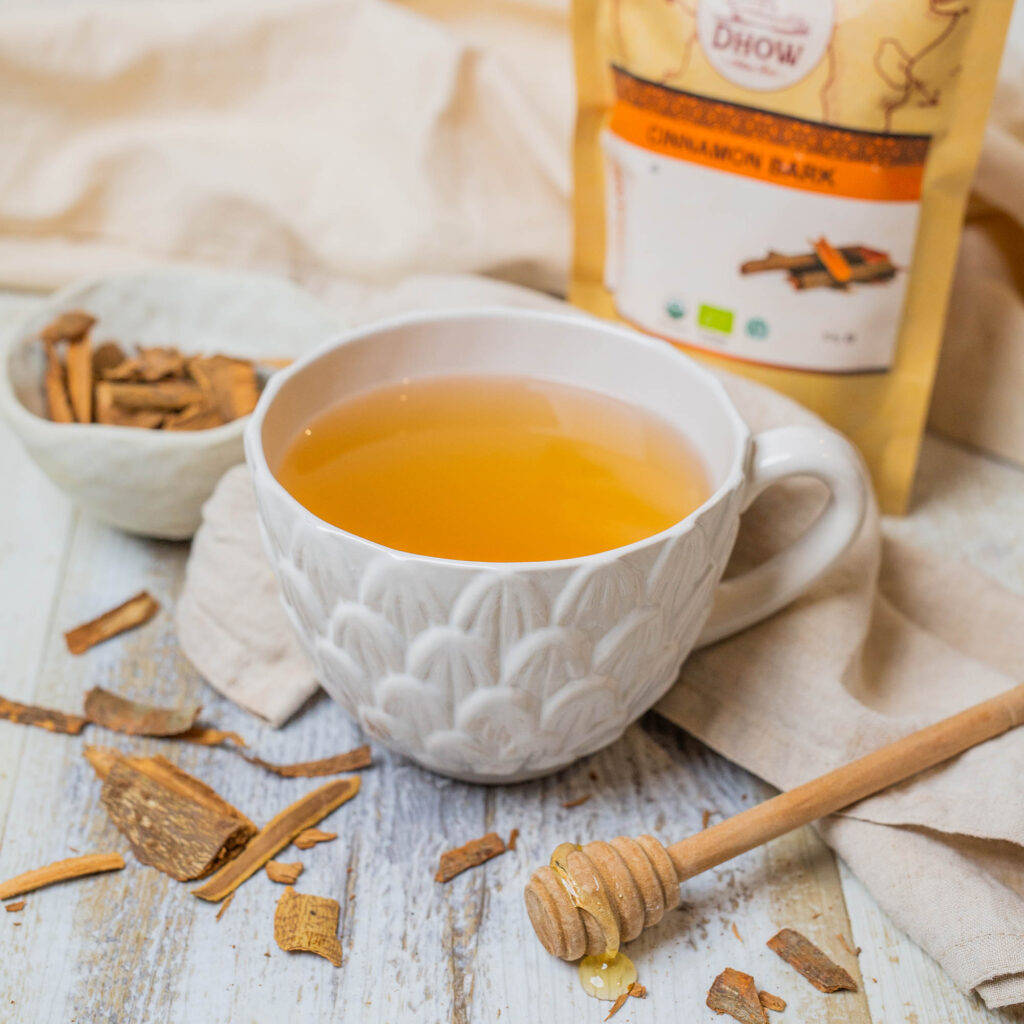
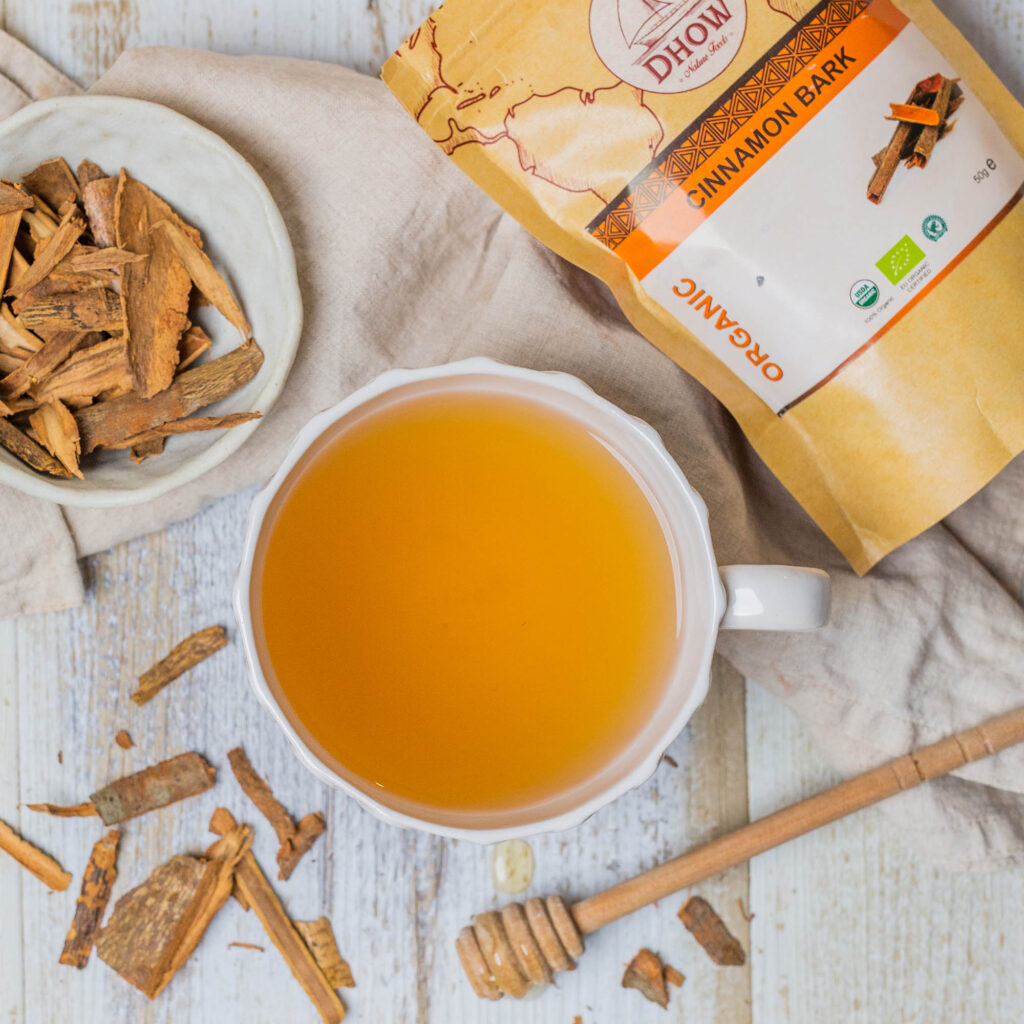
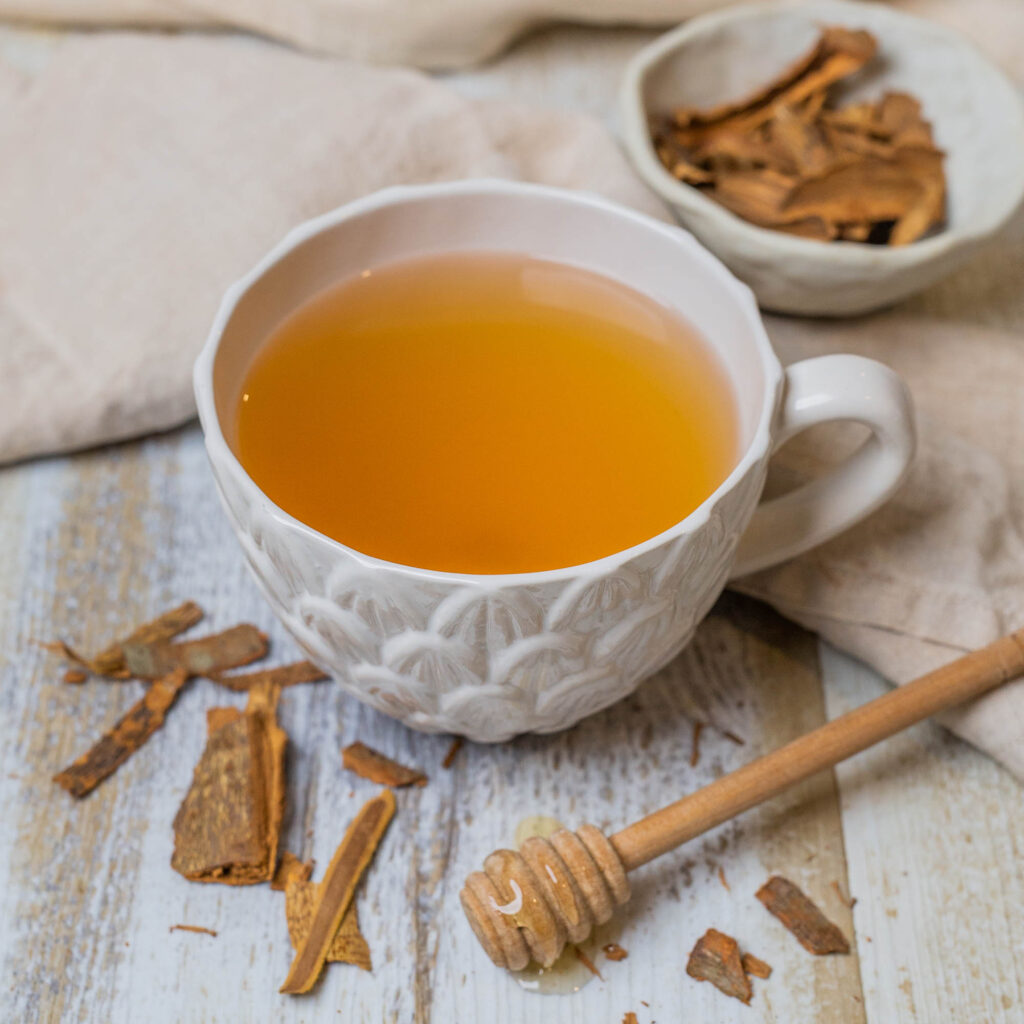
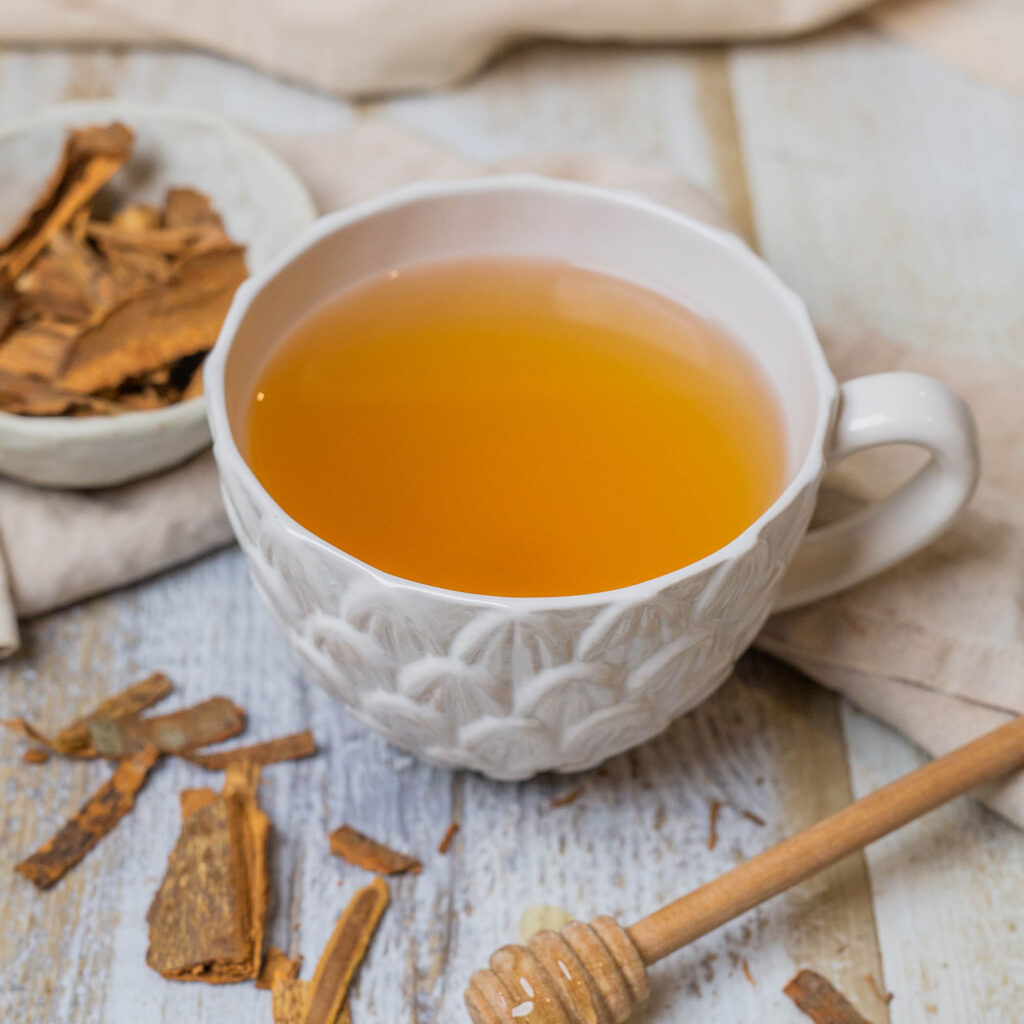
| Cinnamon for Insulin Resistance and PCOS | Print |
- 2 cups water
- ¼ cup DHOW Ceylon Cinnamon Bark
- 2 TBSP raw honey (optional)
- 2 tsp vanilla extract (optional)
- Simply add cinnamon bark to water in a saucepan and bring to a boil. Allow to boil for about 5 minutes to make sure the cinnamon has infused into the water. Once done sift out cinnamon bark and stir in honey and vanilla if using. Enjoy
References:
1.https://pubmed.ncbi.nlm.nih.gov/16190627/
2. https://pubmed.ncbi.nlm.nih.gov/19571155/
3.https://www.ncbi.nlm.nih.gov/pmc/articles/PMC3767714/
4.https://pubmed.ncbi.nlm.nih.gov/17556692/
5. https://pubmed.ncbi.nlm.nih.gov/21711570/







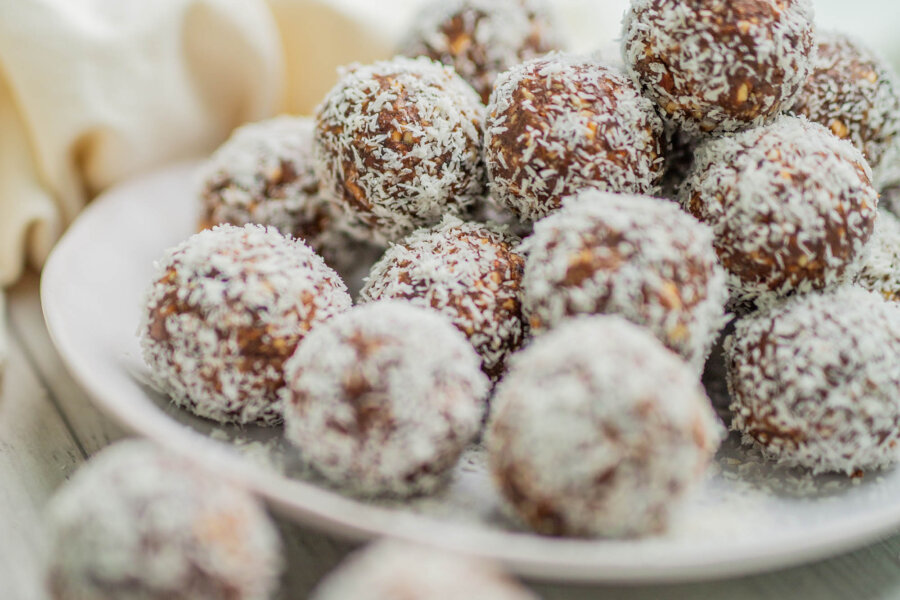


Thanks for the amazing blog. It is very useful. I also suffered from PCOS. For me Solvve supplement has helped me a lot to recover from PCOS. Now, I’m Very happy and more healthy. I hope the below link will help you greatly.
https://www.solvve.in/